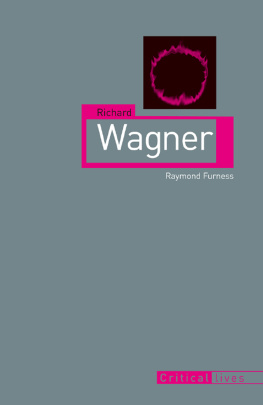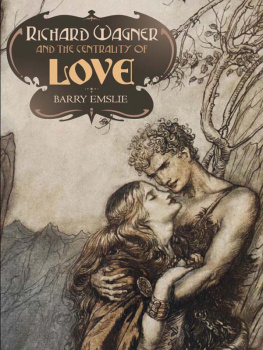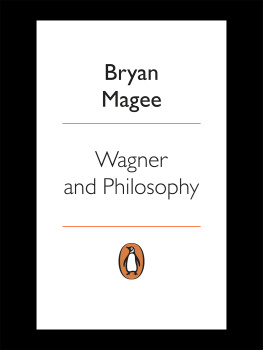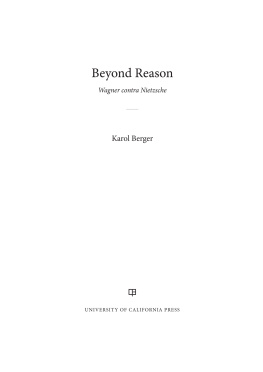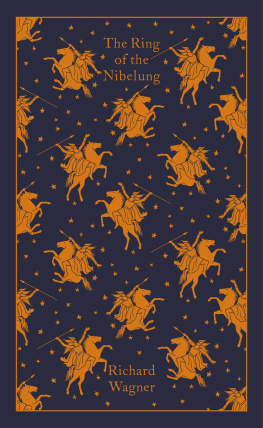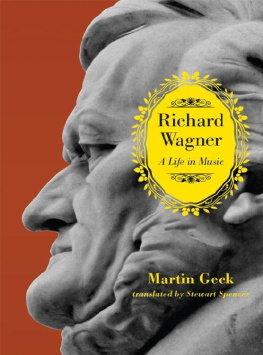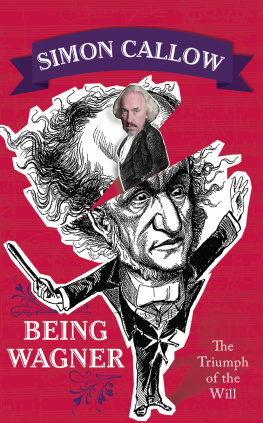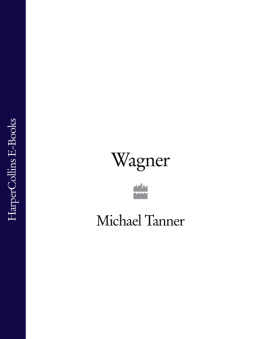Raymond Furness - Richard Wagner
Here you can read online Raymond Furness - Richard Wagner full text of the book (entire story) in english for free. Download pdf and epub, get meaning, cover and reviews about this ebook. year: 2013, publisher: Reaktion Books, genre: Non-fiction. Description of the work, (preface) as well as reviews are available. Best literature library LitArk.com created for fans of good reading and offers a wide selection of genres:
Romance novel
Science fiction
Adventure
Detective
Science
History
Home and family
Prose
Art
Politics
Computer
Non-fiction
Religion
Business
Children
Humor
Choose a favorite category and find really read worthwhile books. Enjoy immersion in the world of imagination, feel the emotions of the characters or learn something new for yourself, make an fascinating discovery.
- Book:Richard Wagner
- Author:
- Publisher:Reaktion Books
- Genre:
- Year:2013
- Rating:5 / 5
- Favourites:Add to favourites
- Your mark:
Richard Wagner: summary, description and annotation
We offer to read an annotation, description, summary or preface (depends on what the author of the book "Richard Wagner" wrote himself). If you haven't found the necessary information about the book — write in the comments, we will try to find it.
With their complex textures, rich harmonies, and elaborate use of leitmotifs, the operas of German composer Richard Wagner (181383) remain some of the most influentialand contentiousin the history of the genre. But while he won renown with what he achieved on the stage, his life was marked by political exile, turbulent love affairs, and poverty. And because Wagner and his music are exceedingly intertwined with the great upheavals of his time, it is difficult to produce an impartial assessment of his output. Appearing at the bicentennial of his birth, Richard Wagner provides a clear and balanced view of both Wagners great successes and the controversies generated by his life and art.
Using Wagners wide-ranging engagement with mythology as a starting point, Raymond Furness explores the composers music and prose writings. He delves deeply into Wagners essential operas, such as The Ring and Tristan and Isolde, offering fascinating insight into these works. Because the great operatic pieces often overshadow the rest of Wagners compositions, Furness also considers neglected fragments like Wieland the Smith, The Mines at Falun, and The Visitors, producing a more rounded critical picture of the composer. With up-to-date dissections of recent Bayreuth productions and a refreshingly uncluttered approach to a much-misunderstood life, Richard Wagner is an engaging look at one of musics most beguiling figures.
Raymond Furness: author's other books
Who wrote Richard Wagner? Find out the surname, the name of the author of the book and a list of all author's works by series.

